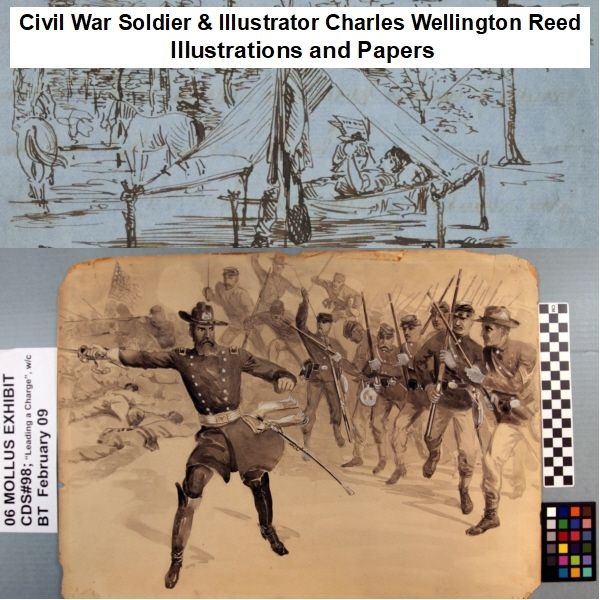
Civil War Soldier & Illustrator Charles Wellington Reed Illustrations and Papers
$19.50
Description
Charles Wellington Reed: Soldier, Artist, Medal of Honor Recipient
1841:
- Charles Wellington Reed is born into a wealthy Boston family.
Early Life (pre-1862):
- Reed studies art while attending private schools.
1862:
- October 12, 1862: C.W. Reed writes to his mother.
- November 3, 1862: C.W. Reed writes to his mother.
- Reed serves as a soldier and artist in the Ninth Independent Battery, Massachusetts Light Artillery (Bigelow’s Battery).
- He also serves as the chief bugler of his battery.
- He begins filling sketchbooks and including drawings in letters, primarily depicting army life, adapting to seasonal changes, soldier amusement, and camp routines.
1863:
- January 9, 1863: C.W. Reed writes to Helen Reed Tilton.
- July 2, 1863: Battle of Gettysburg.
- Reed participates in the battle.
- During sustained firing near the Trostle Farm, Reed mounts his horse and leads another mount carrying the wounded Captain John Bigelow to safety, saving Bigelow’s life.
- Reed sketches the Peach Orchard at Gettysburg.
- August 11 [13], 1863: C.W. Reed writes to his mother.
- Reed participates in the Battle of Mine Run.
1864:
- Reed participates in the Battle of Wilderness.
- Reed participates in the Battle of Spotsylvania.
- Reed participates in the Battle of Petersburg.
- Reed participates in the Battle of Weldon Railroad.
- November 1864: Reed is transferred to the Topographical Engineers, Fifth Army Corps, serving as an assistant to the topographical engineer under General Gouverneur K. Warren at V Corps headquarters.
- Reed creates a “Plan of the Gettysburg Battle Ground.”
1865:
- January 12, 1865: C.W. Reed writes to Helen Reed Tilton.
- Reed sketches Abraham Lincoln visiting the Army of the Potomac at City Point, Virginia, during the Petersburg-Richmond Campaign, capturing the president’s appearance and interaction with soldiers.
- Reed is present at Appomattox, Virginia, and witnesses the surrender of Confederate forces to General Ulysses S. Grant.
Post-War (after 1865):
- Reed illustrates several Civil War books.
- Circa 1887: Reed creates the sketch “‘As you were’ in 65.”
- 1887: Reed illustrates John Billings’ book Hardtack and Coffee.
1895:
- June 1895: John Bigelow writes to the adjutant general of the United States, recommending Reed for the Medal of Honor for his actions at Gettysburg on July 2, 1863.
- 1895: Charles Wellington Reed is awarded the Congressional Medal of Honor for gallantry at Gettysburg.
1926:
- Charles Wellington Reed passes away.
Cast of Characters
Principle People Mentioned in the Sources:
- Charles Wellington Reed (1841-1926): The central figure of the sources. A Civil War soldier, artist, and illustrator born into a wealthy Boston family. He served in the Ninth Independent Battery, Massachusetts Light Artillery (Bigelow’s Battery) as a soldier and chief bugler, and later transferred to the Topographical Engineers, Fifth Army Corps. Reed participated in numerous major battles, including Gettysburg, where he earned the Medal of Honor for bravery in 1895 for saving Captain John Bigelow. He extensively documented his war experiences through hundreds of sketches and letters, providing a unique glimpse into daily military life. After the war, he illustrated several Civil War books, notably Hardtack and Coffee.
- Captain John Bigelow: An officer in the Ninth Independent Battery, Massachusetts Light Artillery, serving alongside Charles Wellington Reed. On July 2, 1863, during the Battle of Gettysburg, Bigelow was wounded, and Reed saved his life by leading his wounded horse to safety under fire. Bigelow later advocated for Reed to receive the Medal of Honor for this act in June 1895.
- General Gouverneur K. Warren: A Union general during the Civil War. In November 1864, Charles Wellington Reed served as an assistant to the topographical engineer under General Warren at V Corps headquarters.
- General Ulysses S. Grant: The commanding general of the Union Army during the Civil War. Charles Wellington Reed was present at Appomattox, Virginia, and witnessed the surrender of Confederate forces to General Grant.
- Abraham Lincoln (1809-1865): The 16th President of the United States during the Civil War. Charles Wellington Reed made a notable pencil sketch of Lincoln visiting the Army of the Potomac at City Point, Virginia, in 1865, capturing the president’s appearance and his interaction with common soldiers.
- John Billings: The author of the Civil War book Hardtack and Coffee (1887), which Charles Wellington Reed illustrated after the war.
- Helen Reed Tilton: Likely a family member of Charles Wellington Reed (possibly a sister or other relative), to whom he wrote letters during the Civil War (e.g., January 9, 1863, and January 12, 1865).
- Reed’s Mother: A frequent recipient of Charles Wellington Reed’s letters during the Civil War, which often included drawings and details about his military life (e.g., October 12, 1862, November 3, 1862, August 11 [13], 1863).
- Shawn Connery: Mentioned as being from the Army Heritage and Education Center. He provides a quote highlighting the historical value of Reed’s letters and sketches for future generations.
Civil War Soldier & Illustrator Charles Wellington Reed Illustrations and Papers
1,924 pages of Charles Wellington Reed (1841-1926) papers, mostly dating from 1862 to 1865. Reed was born into a wealthy Boston family. While attending private schools he studied art. Most of the material in this collection was gathered from the Charles Wellington Reed Papers at the Manuscript Division, Library of Congress, Washington D.C.
Reed was an artist and soldier in the Ninth Independent Battery, Massachusetts Light Artillery (Bigelow’s Battery). In November 1864 he was transferred to the Topographical Engineers, Fifth Army Corps and served as an assistant to the topographical engineer under General Gouverneur K. Warren at V Corps headquarters.
Reed participated in many battles of the Civil War including Mine Run, Gettysburg, Wilderness, Spotsylvania, Petersburg, and Weldon Railroad. In 1895 he was awarded the Congressional Medal of Honor for bravery on the battlefield at Gettysburg. Reed was present at Appomattox, Virginia and witnessed the surrender of Confederate forces to General Ulysses S. Grant. During his service, Reed filled two large sketch books and included hundreds of drawings in letters to his family.
This collection reproduces approximately 700 of Reed’s sketches previously bound in two volumes plus correspondence containing illustrations relating primarily to his experiences in the Civil War. Reed’s papers include articles, citations, military papers, clippings, diary, maps, Reed’s Medals of Honor, photographs, and printed matter. The two volumes of sketches include drawings of army life during the Civil War, some drawn during actual combat. Others are of landscapes, animals, and other studies.
Many letters written by Reed, particularly those to his mother and sister, give details about his role as chief bugler of his battery in the Ninth Independent Battery. Reed often began the letters with a drawing that illustrated military life, including the rigors of a private, but also amusing and mundane aspects of military life. Topics covered in the illustrations include soldiers adapting to seasonal changes in the weather, how they amused themselves, and the routines of camp life.
According to Shawn Connery of the Army Heritage and Education Center, “It is through these letters and sketches that future generations are granted an extraordinary glimpse into the daily life of this individual soldier.”
After the war he illustrated several Civil War books, notably Hardtack and Coffee (1887) by John Billings.
Charles Wellington Reed received the Medal of Honor in 1895 for gallantry in action on July 2, 1863, during the battle of Gettysburg. Despite sustained firing on his position near the Trostle Farm, Reed mounted his horse and led to safety another mount carrying the wounded Captain John Bigelow, thereby saving Bigelow’s life. In June 1895, John Bigelow wrote to the adjutant general of the United States, recommending Reed for the Medal of Honor for his actions that day.
Related products
-
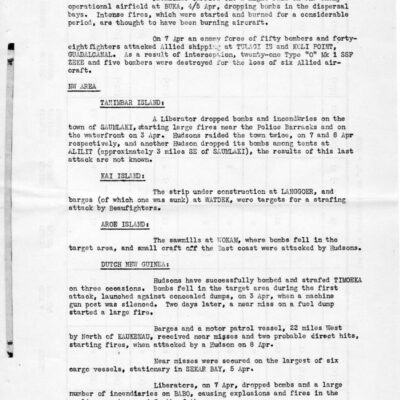
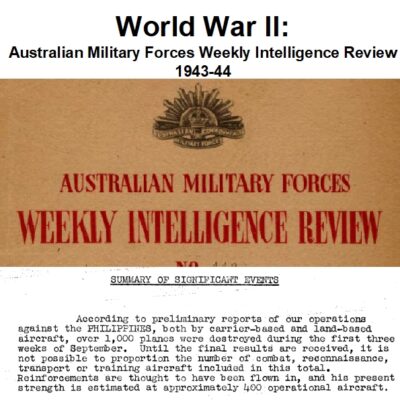
World War II: Australian Military Weekly Intelligence Reports 1943-44
$3.94 Add to Cart -
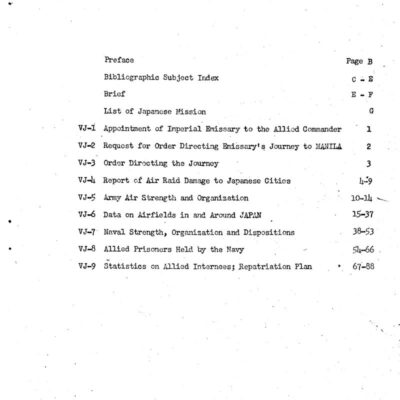
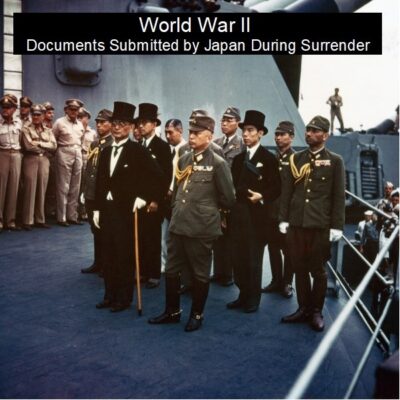
Japan’s Surrender Documents from World War II
$1.99 Add to Cart -
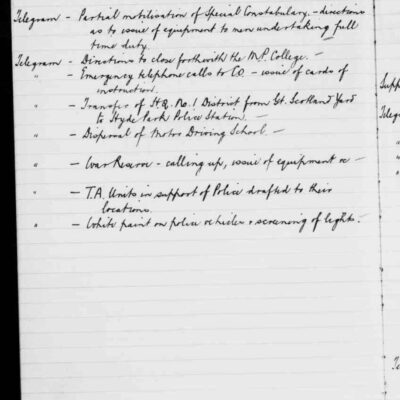
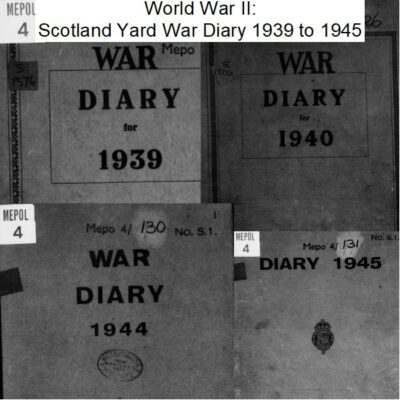
World War II: Scotland Yard War Diary from 1939 to 1945
$3.94 Add to Cart -
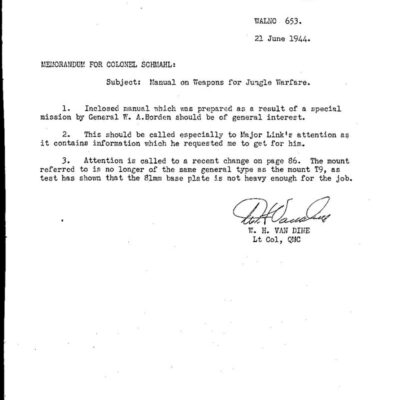
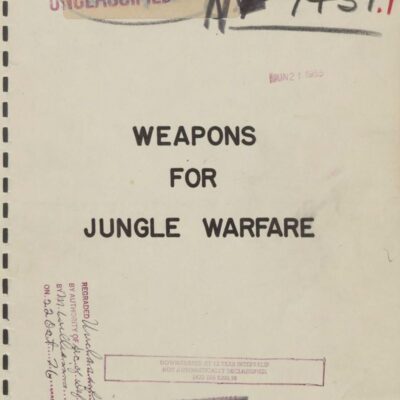
World War II Manual on Weapons for Jungle Warfare (1944)
$1.99 Add to Cart